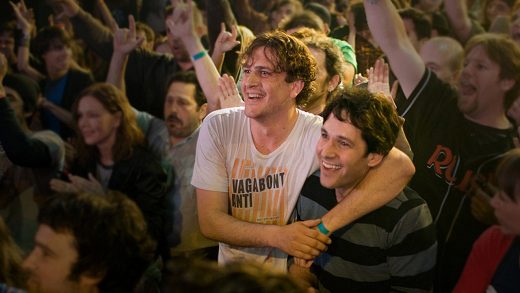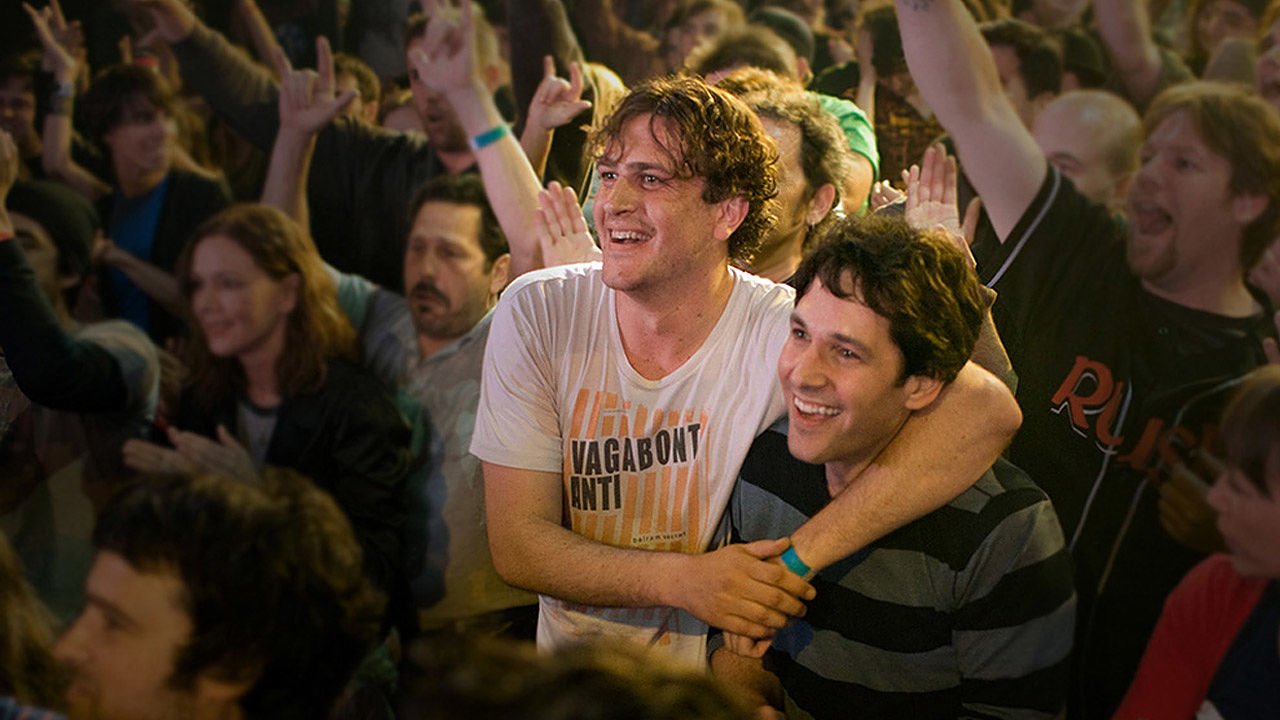How Men’s Changing Friendships Might Reshape The Workplace
Here’s a little experiment.
Men: when you go to the movies with another guy, how many seats do you take? Chances are the answer is three: one of you sits in one seat, you put your coats in the middle seat between you, and the other guy takes the third. Why? Well, aside from letting you manspread, you wouldn’t want anyone to think you were there, you know, “together.”
Women: you go the movies with another woman. How many seats do you take? The correct answer is two. Why? Because you don’t care at all if anyone thinks you’re “together,” and besides, you want to be able to talk with your friend.
Now, of course, this is generalizing a bit, but our culture generalizes a lot—especially when it comes to gender and friendship. This is the era of bromances and brohugs and BFFs and “friending” everyone you’ve ever known or might ever want to know. But amid all that supposed camaraderie, in recent years (and as LGBT visibility rises), men’s friendships have become haunted by homophobia—the fear that emotional closeness must be accompanied by sex. Weird, right?
It wasn’t always this way, and there are already signs that friendships among men are shifting—with potentially big implications for the modern workplace.
Not Your Father’s Friendships
Something happened in the mad rush through the 20th century: men lost their friends. During the first half of the century, American culture held fast to war buddies and fellows in our fraternal lodges—remember Jackie Gleason and Art Carney as Raccoons? But, generally speaking, the professional class’s postwar move to the suburbs, coupled with a dog-eat-dog business ethos, steadily isolated many men from that casual fellowship.
By the late 1970s, Daniel Levinson, the Yale psychologist who invented the term “male midlife crisis,” wrote in his 1978 best-seller The Seasons of a Man’s Life these cheery words: “Close friendship with a man or woman is rarely experienced by American men.” As Levinson saw it at the time, “Most men do not have an intimate male friend of the kind that they recall fondly from boyhood or youth.” In his 1983 book on the subject, Men & Friendship, writer Stuart Miller described men’s friendships as characterized by “thinness, insincerity, and even chronic wariness.” Ouch.
Now, though, recent research by Dove Men+Care (on which I consulted) suggests that men see friendship with other men as a central aspect of their lives.
Nearly nine out of 10 men (87%) in a nationally representative survey of 1,000 American men, ages 25–54, said that friendship was important, and 94% felt their male friends had a positive impact on their overall well-being. Over 80% of men felt that their friends were loyal and trustworthy, and are there for them no matter what. And fully 84% said they would drop everything to be there to care for a friend. Evidently, caring for someone you care about is still a heroic virtue for most men today.
This is new.
For decades women have been considered the friendship experts: think of Carrie Bradshaw and her gal pals on Sex and the City, or even Hannah and her coterie of female friends on Girls, whose frank conversations on every topic, particularly sex, makes many men squirm (and not necessarily with envy that their conversations with their own friends aren’t as explicit or revealing).
And yet in the Dove study, men were frustrated that they don’t see this type of friendship reflected in current media. Buddies and bros, sure. But real friends who reveal themselves to each other, share their feelings, talk openly—that’s still a rare sight.
At the very least, it’s a model of friendship that’s already taken root among American men, who are now waiting for pop culture to catch up. In fact, nearly three-fourths of the men surveyed (73%) felt that pop culture portrays men’s friendships as superficial, infantile, or a bromance.
All that goofy sincerity feels, well, insincere.
Male Friendship At The Office
If homophobia has kept men’s friendships limited, so has workplace competition—at least historically. With everyone climbing that same ladder, if you let your guard down for a second somebody’s likely to squash your fingers under heel as they scramble over you. Think of that movie In the Company of Men, or countless business-world, screw- the-other-guy films, like The Wolf of Wall Street or The Big Short—all oneupmanship and triumph, and virtually no disclosure of real feelings. (Friendship movies, on the other hand, have to be approached, as the title of one of them suggests, “sideways.”)
It’s off the screen and in actual offices, though, where things may be changing first.
There are lots of reasons why we think friendship and work don’t mix, aside from hyper-competitiveness. First, there’s longevity: gone are the days when, like my grandfather, you spent your entire working life at one company with the same colleagues, until death or retirement, whichever came first. Now our colleagues are unlikely to be around in five or six years.
There’s also hierarchy to consider. What if you get promoted—or your friends do—and you suddenly aren’t “peers” but supervisors and supervised? And besides, social media can keep us connected to older friends, no matter how far-flung.
It’s hard to say whether the evolving workplace is changing male friendships or vice versa; probably it’s a mix of the two. But what’s clear is that at the same time that corporate hierarchies are flattening and employee tenures shortening, men are steadily growing closer.
These changes may seem small, but over time, they could prove transformational. We already know how workplace friendships can be vital, energizing, and meaningful. In addition to their upsides for individual well-being, they also impact team performance, adding another level to the instrumental ways we rely on each other and collaborate.
And besides, as office intimacy these days is perilous at best and potentially predatory at worst, we men are also learning that workplace friendships, with both women and men, can be a reason we show up for work every day.
We let down our guard, share what’s important, and listen with care. And our lives—in the office and outside it—are so much richer for that.
Michael Kimmel is SUNY distinguished professor of sociology and gender studies at Stony Brook University, where he directs the Center for the Study of Men and Masculinities. He is the author of Guyland: The Perilous World Where Boys Become Men.
Fast Company , Read Full Story
(36)















